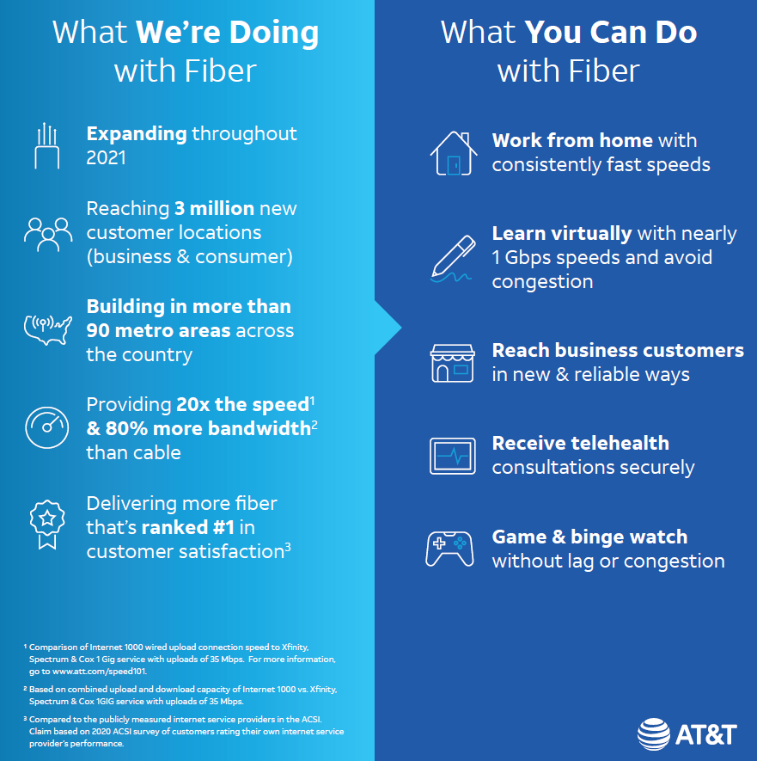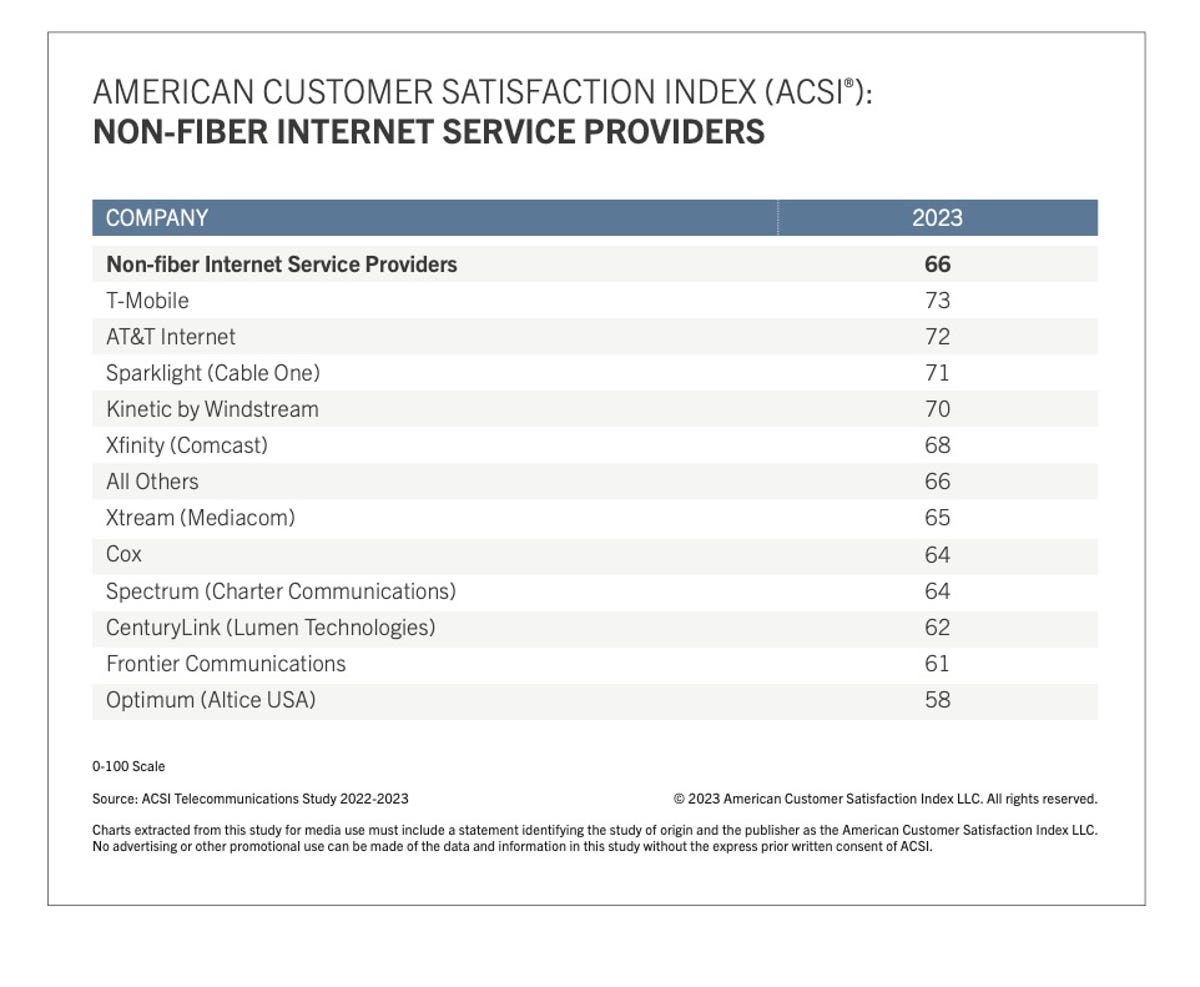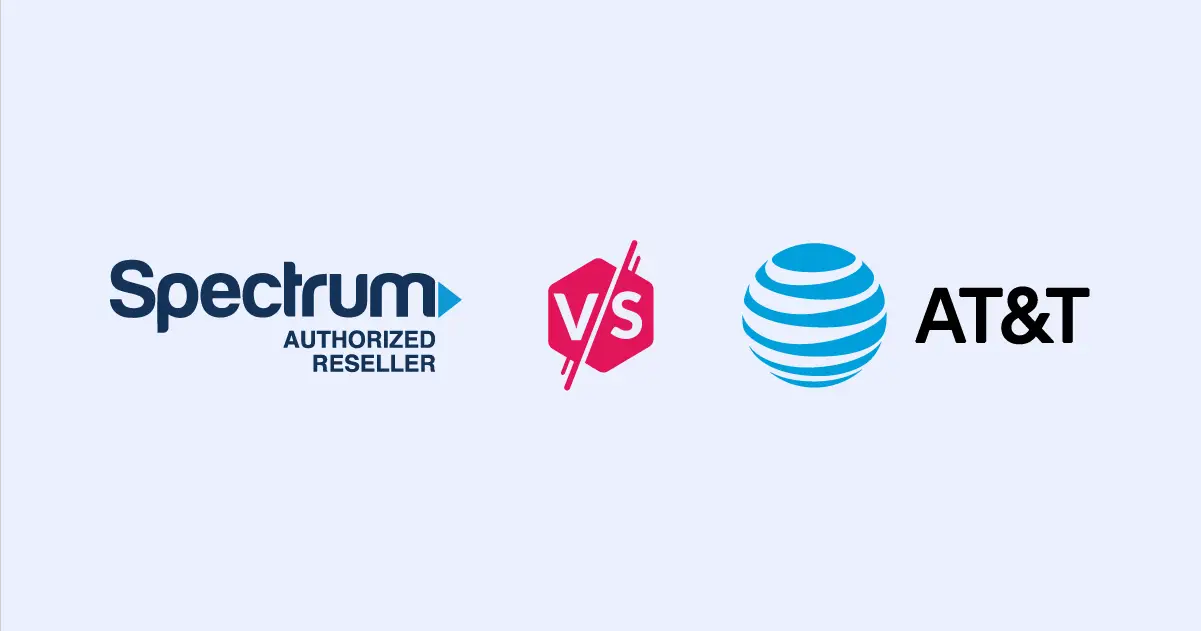Spectrum Internet offers cable-based service, while AT&T Fiber provides fiber-optic internet. Each has distinct advantages in speed and reliability.
Spectrum Internet is widely available and offers consistent speeds suitable for most households. It utilizes cable infrastructure, making it accessible to a broader audience. On the other hand, AT&T Fiber delivers faster, more reliable connections ideal for heavy internet usage, such as gaming or streaming.
Fiber-optic technology ensures minimal latency and higher bandwidth, making it a superior choice for those needing top-tier performance. Availability may be limited compared to cable, but the benefits are significant where offered. Choosing between Spectrum Internet and AT&T Fiber depends on specific needs, budget, and availability in your area. Each service has unique strengths catering to different internet usage patterns.
Speed Comparison
Speed is the heart of any internet service. Spectrum Internet and AT&T Fiber offer different speeds. This section compares their download and upload speeds.
Download Speeds
Spectrum Internet delivers high download speeds. It ranges from 100 Mbps to 940 Mbps. This is great for streaming, gaming, and browsing.
AT&T Fiber, on the other hand, offers even faster download speeds. Its speeds range from 300 Mbps to 5 Gbps. This makes it ideal for large households and heavy internet use.
| Provider | Download Speed |
|---|---|
| Spectrum Internet | 100 Mbps – 940 Mbps |
| AT&T Fiber | 300 Mbps – 5 Gbps |
Upload Speeds
Upload speeds are important for video calls and cloud backups. Spectrum Internet offers upload speeds from 10 Mbps to 35 Mbps.
AT&T Fiber excels here too. It provides upload speeds that match its download speeds. This ranges from 300 Mbps to 5 Gbps.
Here is a quick comparison:
- Spectrum Internet Upload Speeds: 10 Mbps – 35 Mbps
- AT&T Fiber Upload Speeds: 300 Mbps – 5 Gbps
Both providers cater to different needs. Choose based on your requirements.

Credit: about.att.com
Coverage Areas
Choosing the right internet service provider is crucial. Coverage areas play a significant role in determining the best option for you. Spectrum Internet and AT&T Fiber are two major providers, but their coverage differs. This section will explore their urban availability and rural reach.
Urban Availability
Spectrum Internet is widely available in urban areas. They cover many major cities across the United States. Spectrum’s infrastructure supports densely populated regions, providing reliable service. Their network is extensive, making them a popular choice for city dwellers.
AT&T Fiber also serves urban areas, but their coverage can be more limited. They focus on specific cities and neighborhoods. AT&T Fiber offers high-speed connections where available. Their service is expanding, but not as widespread as Spectrum in urban settings.
| Provider | Cities Covered |
|---|---|
| Spectrum Internet | New York, Los Angeles, Chicago, Houston, Miami |
| AT&T Fiber | Atlanta, Dallas, San Francisco, San Antonio, Raleigh |
Rural Reach
Spectrum Internet does offer services in some rural areas. Their reach is better than some competitors, but still limited. Rural customers might find fewer options and slower speeds. Spectrum is working to expand its rural coverage.
AT&T Fiber has less presence in rural areas. Their fiber-optic network is mainly in urban and suburban regions. Rural customers often need to look at alternative solutions. AT&T is investing in expanding its network, but progress is slow.
- Spectrum Internet is more accessible in rural locations.
- AT&T Fiber focuses mainly on urban and suburban areas.
Understanding the coverage areas helps in making an informed decision. Both Spectrum Internet and AT&T Fiber have their strengths and limitations in different regions.
Installation Process
The installation process is a crucial factor when choosing an internet service provider. It can impact how quickly you get connected and the convenience of the setup. Here, we will compare the installation processes of Spectrum Internet and AT&T Fiber.
Self-installation
Spectrum Internet offers a self-installation option that is user-friendly. You receive a self-installation kit with step-by-step instructions. The kit includes a modem, router, and necessary cables. You can follow the instructions to set up the equipment yourself. Spectrum’s self-installation kit is ideal for those who prefer a quick and straightforward setup.
AT&T Fiber also provides a self-installation kit. The kit includes a gateway, power cords, and ethernet cables. AT&T’s instructions are easy to follow. You can set up the equipment without professional help. The self-installation process is efficient and user-friendly.
| Provider | Self-Installation Kit | Ease of Instructions |
|---|---|---|
| Spectrum Internet | Modem, Router, Cables | Easy |
| AT&T Fiber | Gateway, Power Cords, Ethernet Cables | Easy |
Professional Installation
Spectrum Internet offers a professional installation service. A technician will visit your home to set up the equipment. The technician ensures everything is working correctly before leaving. This option is ideal for those who prefer expert assistance.
AT&T Fiber also provides a professional installation service. A technician will install the fiber-optic equipment in your home. The technician ensures a seamless connection. This option is perfect for those who prefer a hassle-free setup.
- Spectrum Internet: Technician sets up equipment and ensures functionality.
- AT&T Fiber: Technician installs fiber-optic equipment for a seamless connection.
Both Spectrum Internet and AT&T Fiber offer self-installation and professional installation options. The choice depends on your preference for convenience and ease of setup.
Customer Experience
The customer experience is vital in choosing an internet service provider. It encompasses customer support, user reviews, and overall satisfaction. Let’s compare the customer experience of Spectrum Internet and AT&T Fiber.
Customer Support
Customer support is crucial for resolving issues quickly. Both Spectrum Internet and AT&T Fiber offer customer support, but they differ in various ways.
- Spectrum Internet: Spectrum provides 24/7 customer support through phone, chat, and email. Their support team is known for being responsive and helpful. They also offer a wide range of self-help resources on their website.
- AT&T Fiber: AT&T Fiber also offers 24/7 customer support. Users can reach out via phone, chat, or email. AT&T has a dedicated app for managing services and getting support. Their support team is praised for being knowledgeable and efficient.
Both providers ensure that their customers have multiple ways to get help.
User Reviews
User reviews provide insight into the real-world experiences of customers. They cover various aspects such as internet speed, reliability, and customer service.
| Aspect | Spectrum Internet | AT&T Fiber |
|---|---|---|
| Internet Speed | Mixed reviews with some praising speed, others noting slowdowns. | Generally positive reviews, consistent high-speed performance. |
| Reliability | Users report occasional outages and interruptions. | Most users find AT&T Fiber reliable with minimal downtime. |
| Customer Service | Some users have mixed feelings about customer service experiences. | Many users commend AT&T Fiber’s helpful and prompt customer service. |
Both Spectrum Internet and AT&T Fiber have their strengths and areas for improvement. User reviews highlight the real experiences of their customers.
Pricing And Plans
Choosing between Spectrum Internet and ATT Fiber can be challenging. Understanding their pricing and plans might help you decide. Let’s break down their monthly costs and contract terms.
Monthly Costs
Comparing the monthly costs of Spectrum Internet and ATT Fiber reveals differences:
| Provider | Plan | Monthly Cost | Download Speed |
|---|---|---|---|
| Spectrum Internet | Basic | $49.99 | Up to 200 Mbps |
| Spectrum Internet | Ultra | $69.99 | Up to 400 Mbps |
| ATT Fiber | Internet 300 | $55.00 | Up to 300 Mbps |
| ATT Fiber | Internet 1000 | $80.00 | Up to 1000 Mbps |
Contract Terms
Understanding the contract terms can affect your decision:
- Spectrum Internet offers no-contract plans. You can cancel anytime without fees.
- ATT Fiber requires a 12-month contract. Early termination fees may apply.
Considering these factors will help you choose the right plan for your needs.
Additional Features
When choosing between Spectrum Internet and AT&T Fiber, additional features can make a significant difference. Both providers offer a range of extra services and perks that can enhance your internet experience. Let’s dive into the details.
Bundled Services
Spectrum Internet offers attractive bundled services. You can combine TV, phone, and internet. This means fewer bills and more convenience. They also provide access to hundreds of channels. You can even get premium channels as part of the package.
AT&T Fiber also offers bundled services. You can combine internet with TV and phone services. AT&T’s bundles often include HBO Max and other streaming services. This adds significant value to your subscription.
Extra Perks
Spectrum includes several extra perks with their internet plans. You get free access to a vast network of Wi-Fi hotspots. This allows you to stay connected even when away from home. Spectrum also offers a free modem with all internet plans.
AT&T Fiber provides its own set of extra perks. Subscribers get unlimited internet data with certain plans. This means no worries about data caps. AT&T Fiber also offers advanced security features. You get features like internet security and parental controls.
Final Verdict
Choosing between Spectrum Internet and AT&T Fiber can be tough. Each offers unique benefits that cater to different needs. This section will help you decide which one suits you best.
Best For Speed
AT&T Fiber stands out for its speed. Fiber-optic technology offers faster and more reliable internet. Spectrum Internet uses cable technology, which is slower than fiber. Check the table below for a quick comparison:
| Provider | Download Speeds | Upload Speeds |
|---|---|---|
| AT&T Fiber | Up to 1 Gbps | Up to 1 Gbps |
| Spectrum Internet | Up to 200 Mbps | Up to 10 Mbps |
AT&T Fiber is ideal for households needing high-speed connections. Spectrum Internet is suitable for general browsing and streaming.
Best For Value
Value is crucial when choosing an internet provider. Let’s compare the pricing and offers:
- AT&T Fiber offers plans starting at $35 per month.
- Spectrum Internet offers plans starting at $49.99 per month.
AT&T Fiber offers more value for high-speed internet. Spectrum Internet may have lower initial costs, but speed is a trade-off. AT&T Fiber includes free installation and equipment. Spectrum Internet may charge extra fees.
Ultimately, your choice depends on your specific needs. For speed, AT&T Fiber is the winner. For value, AT&T Fiber also offers competitive pricing and benefits.

Credit: www.reddit.com

Credit: www.cnet.com
Frequently Asked Questions
What Are The Key Differences Between Spectrum And At&t Fiber?
Spectrum uses cable internet, while AT&T Fiber uses fiber-optic technology. Fiber offers faster speeds and lower latency. Spectrum is more widely available. Both offer competitive pricing and packages.
Which Is Faster: Spectrum Or At&t Fiber?
AT&T Fiber generally offers faster speeds compared to Spectrum. Fiber-optic technology allows for higher bandwidth and quicker data transfer rates.
How Do Installation Processes Compare?
Spectrum uses existing cable lines, making installation quicker. AT&T Fiber may require new fiber-optic lines, which can take longer. Both providers offer professional installation services.
What Are The Pricing Differences?
Spectrum typically offers lower initial prices but may increase after a year. AT&T Fiber’s pricing is more stable. Both provide various plans to suit different budgets.
Conclusion
Choosing between Spectrum Internet and AT&T Fiber depends on your specific needs. Spectrum offers wide availability and no data caps. AT&T Fiber provides faster speeds and reliable performance. Evaluate your priorities and budget to make the best decision. Both providers have unique advantages, ensuring a solid internet experience for different preferences.

